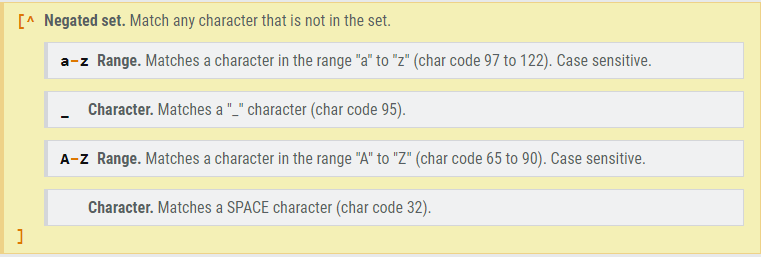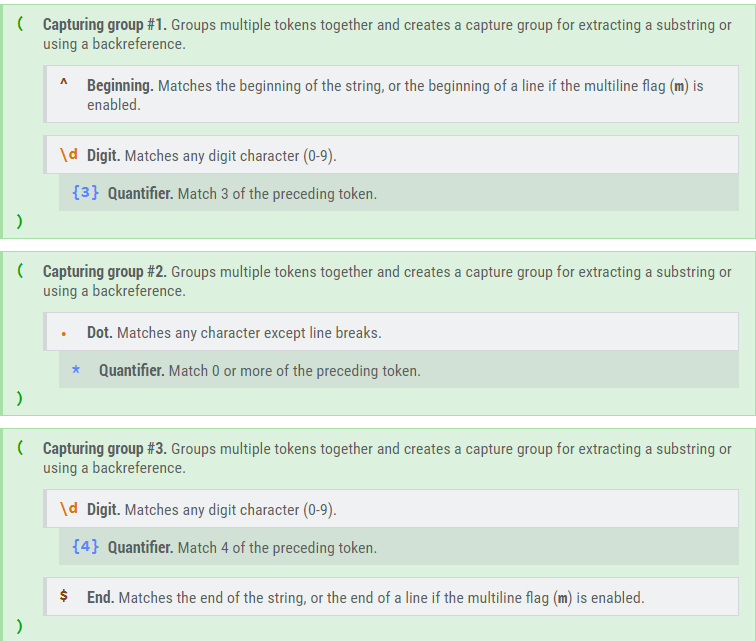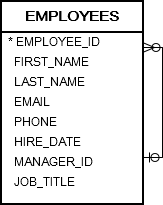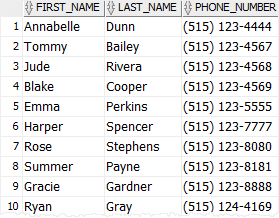The Oracle REGEXP_REPLACE() function replaces a sequence of characters that matches a regular expression pattern with another string.
The REGEXP_REPLACE() function is an advanced version of the REPLACE() function.
Syntax
The following illustrates the syntax of the Oracle REGEXP_REPLACE() function:
REGEXP_REPLACE ( source_string, search_pattern
[, replacement_string
[, star_position
[, nth_occurrence
[, match_parameter ]
]
]
]
)
Code language: SQL (Structured Query Language) (sql)Arguments
The REGEXP_REPLACE() function takes 6 arguments:
1) source_string
is the string to be searched for.
2) search_pattern
is the regular expression pattern for which is used to search in the source string.
3) replacement_string
is the string that replaces the matched pattern in the source string. This argument is optional and its default value is null.
4) start_position
is an integer that determines the position in the source string where the search starts. The start_position is also optional. If not mentioned, the start_position is 1, which is the beginning position of the source string.
5) nth_occurrence
is a non-positive integer that indicates which position the replacement should take place. If nth_position is 0, the REGEXP_REPLACE() function will replace all occurrences of the match. Otherwise, the REGEXP_REPLACE() function will replace the nth occurrence.
6) match_parameter
is a literal string that changes the default matching behavior of the function. The behavior of the match_parameter in this function is the same for in the REGEXP_SUBSTR() function. Refer to REGEXP_SUBSTR() function for detailed information.
Return Value
The REGEXP_REPLACE() function returns a string with matched pattern replaced by another string.
Examples
A) Removing special characters from a string
Sometimes, your database may contain special characters. The following statement uses the REGEXP_REPLACE() function to remove special characters from a string:
SELECT
REGEXP_REPLACE('Th♥is∞ is a dem☻o of REGEXP_♫REPLACE function','[^a-z_A-Z ]')
FROM
dual;
Code language: SQL (Structured Query Language) (sql)The following is the result:
This is a demo of REGEXP_REPLACE functionCode language: SQL (Structured Query Language) (sql)This query is useful in a data cleaning task process.
The following picture illustrates the meaning of the regular expression [^a-z_A-Z ]

B) Masking sensitive information
The following statement hides the middle part of a credit card for security purposes. You can apply this technique in E-commerce, Banking, and other Financial applications that require strict security.
SELECT
regexp_replace( '4024007187788590',
'(^\d{3})(.*)(\d{4}$)', '\1**********\3' )
credit_card
FROM
dual;Code language: SQL (Structured Query Language) (sql)Here is the output:
402**********8590Code language: SQL (Structured Query Language) (sql)This picture explains the meaning of the regular expression: (^\d{3})(.*)(\d{4}$)

C) Removing redundant spaces
The following statement removes redundant spaces, the space character that appears more than one, in a string:
SELECT
regexp_replace(
'This line contains more than one spacing between words'
, '( ){2,}', ' ' ) regexp_replace
FROM
dual;Code language: SQL (Structured Query Language) (sql)Output:
This line contains more than one spacing between wordsCode language: SQL (Structured Query Language) (sql)Here is the meaning of the regular expression ( ){2,}

D) Reformat phone numbers
See the following employees table in the sample database:

The following statement searches for phone numbers that match the pattern xxx.xxx.xxxx. and reformats them using the pattern (xxx) xxx-xxxx.
SELECT
first_name,
last_name,
REGEXP_REPLACE( phone, '(\d{3})\.(\d{3})\.(\d{4})', '(\1) \2-\3' ) phone_number
FROM
employees
ORDER BY
phone_number;Code language: SQL (Structured Query Language) (sql)The following illustrates the output:

The meaning of the regular expression ([[:digit:]]{3})\.([[:digit:]]{3})\.([[:digit:]]{4}) is as follows:

In this tutorial, you have learned how to use the Oracle REGEXP_REPLACE() function to replace a sequence of characters that matches a regular expression pattern with another string.